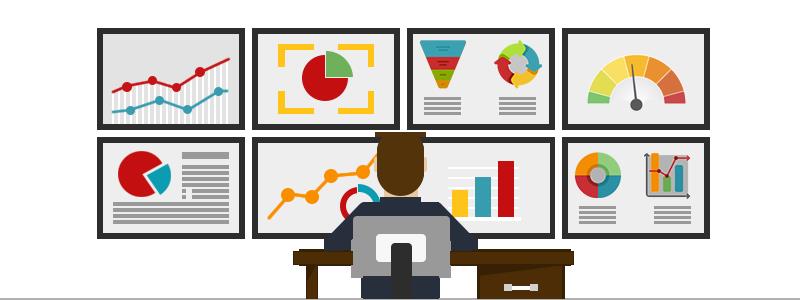

What is Fleet Management?
Businesses that rely on transportation utilize fleet management to control costs, productivity, fuel management, and compliance. As such, fleet management is comprised of several different tasks to keep vehicles and operations running smoothly and efficiently. Fleet management best practices involve the use of technology and software solutions to help reduce costs, enforce driver safety, minimize risk, increase productivity, and schedule preventive maintenance to reduce downtime.
What are the benefits of Fleet Management?
![]()
-
Live Monitoring Through Fleet Management System
The ability to track your assets anytime, anywhere in real time from the comfort of your home or office is a huge boon to making your daily fleet management operations more efficient. This can be effectively done through a combination of GPS tracking devices and software. With just a click, you can use your fleet management software to:
- Track the location of your vehicles and large equipment
- Monitor the condition of your assets and schedule regular maintenance reminders
- Monitor the use and activity of your assets to ensure compliance
- Monitor wasteful and dangerous driver behaviours
- Optimize inefficient driver routes
- Verify time card information to reduce misreported information
![]()
Using the software’s geofencing tool, you can monitor that your assets remain within specified areas. For municipalities and emergency responders, this can help you know if you have emergency personnel coverage in specific areas. Furthermore, through the use of the fleet management system’s mapping and route optimization tools, you also can improve your department or organization’s emergency response time.
-
Access to accurate data
Fleet data and analytics are important sources of information for any operations manager. This information helps them to:
- Stay informed about the condition of their vehicles and other large assets
- Provide you with actionable information to make informed decisions
- Help you to ensure that your reports are accurate
- Reduce unnecessary costs by eliminating human errors

Any fleet management solution that’s worth its salt is going to provide you with data. However, some systems will provide you with too much data, forcing you to spend your valuable time sorting through unnecessary information just to get the snippets you actually need.
Having a system that can provide you with easy access to the right kinds of data, as well as provide you with the quality customer support you’d expect, is a win-win for any fleet management professional.
-
Save money
If you’re like most operations managers, you’re being asked to do more with fewer budgets. While it’s understandable since the ultimate goal of any business is to find ways to increase efficiency by reducing overhead and increasing its profits, it doesn’t make accomplishing that task any easier.
![]()
The good news is that an advanced fleet management system can help you save money by maximizing the efficiency of your equipment, thereby increasing the productivity of your fleet. This can be done through the use of telematics, which can assess the health and performance of your vehicles and equipment. This data helps you to know the following:
- How often your vehicles are in use
- When your vehicles are performing optimally or are experiencing technical issues
- Whether your assets are up on their regular maintenance
- When your vehicles are in need of repair
- Furthermore, you can use your tracking solutions to know whether your fuel is being used most effectively, if your drivers are demonstrating efficient driving behaviours, and how much wasteful engine idle time your equipment experiences.
-
Decrease risks
Risk managers have the challenging task of assessing and identifying any potential concerns that could threaten the safety, reputation, and financial prosperity of the company or municipality community. As such, it’s also your responsibility to know where your organization’s assets are at all times and how they are being used.
In a perfect world, you’d be able to trust all of your employees without question. However, the reality is that you’ll find yourself working with some employees you can trust and a few rogue people who try to abuse your organization’s resources and time. This behaviour can potentially put your assets at risk, and put you and your company in a compromising position. Our GPS tracking solutions can help you reduce your liability while also saving money.
Using fleet management system’s GPS tracking can help to deter theft and aid in the recovery of lost or stolen assets. By being able to pinpoint the location of your assets in real time, you can provide law enforcement with the most accurate information to help them recover your vehicle or equipment.
Not only this, a fleet management system comes with many other features such as fuel cards that can help you to save huge on your monthly fuel expenditure.
How to improve your Fleet Management?
As a fleet owner, management of your vehicles can be a tough task. It is important that the roadblocks in your business’s fleet management are identified and subsequently tackled. This begins with locating the bottlenecks, and where the efficiency of your fleet is falling short. After that, you must consult with your staff to gauge what it is that can be done better, and ask for their hands-on feedback. Running an optimised and streamlined fleet should not be a troubling task after that.
No matter whether you work for a company or municipality, if you’re using an ineffective fleet management system — or no fleet management system at all — then you owe it to yourself to make your daily operations more efficient.